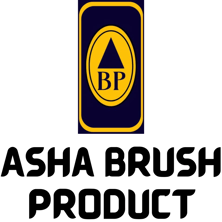Enjoy exclusive quality on premium brushes!
The Essential Role of FRP Brushes in Water Treatment Plants
Water treatment plants play a crucial role in providing clean and safe water for industries, municipalities, and households. These facilities require regular maintenance to ensure efficient filtration, sedimentation, and chemical treatment processes. One key tool that aids in this maintenance is the FRP (Fiber Reinforced Plastic) brush. With its durability, corrosion resistance, and lightweight design, FRP brushes are essential for cleaning and maintaining critical water treatment components.
FRP FIBERGLASS BRUSH
ASHA BRUSH PRODUCT


What is an FRP Brush?
FRP brushes are made from fiber-reinforced plastic, a material known for its high strength, chemical resistance, and non-corrosive properties. Unlike traditional metal brushes, FRP brushes do not rust, degrade, or react with harsh cleaning agents, making them ideal for water treatment applications.
Uses of FRP Brushes in Water Treatment Plants
1. Cleaning Sedimentation and Settling Tanks
Sedimentation tanks collect solid particles from the water, but over time, sludge, biofilm, and scale accumulate on the walls and floors. FRP brushes help scrub these surfaces, ensuring efficient sediment removal and preventing blockages.
2. Scrubbing Algae and Deposits from Filtration Systems
Filtration units can become clogged with organic growth, mineral deposits, and sludge, reducing their effectiveness. FRP brushes allow maintenance workers to scrub filter screens, membranes, and grids, ensuring optimal water flow and filtration.
3. Maintaining Pipelines and Water Channels
Pipes and conduits in water treatment plants often develop scale buildup and biofilm, which can lead to flow restrictions and contamination risks. Using FRP brushes to clean these pipelines ensures uninterrupted water movement and prevents microbial growth.
4. Cleaning Pumps and Mechanical Equipment
Water treatment plants rely on pumps, valves, and mechanical systems to process large volumes of water. FRP brushes help remove dirt, rust, and debris from these machines, ensuring they operate at peak efficiency and preventing costly breakdowns.
5. Preventing Corrosion and Chemical Contamination
Chemical treatment tanks and dosing systems require frequent cleaning to prevent contamination and maintain accuracy in chemical dosing. FRP brushes are safe to use in these environments as they do not react with chlorine, acids, or other chemicals used in water treatment.
Advantages of Using FRP Brushes in Water Treatment Plants
✔ Corrosion-Resistant: FRP brushes do not rust or degrade in wet, chemical-heavy environments.
✔ Durable and Long-Lasting: Designed for industrial use, these brushes withstand frequent and rigorous cleaning.
✔ Lightweight and Easy to Handle: Reduces worker fatigue and increases efficiency in maintenance tasks.
✔ Non-Conductive and Safe: Ideal for use in environments where electrical conductivity is a concern.
✔ Eco-Friendly: Helps reduce the need for harsh chemical cleaners by providing effective mechanical cleaning.
Conclusion
The role of FRP brushes in water treatment plants is critical for maintaining clean, efficient, and safe operations. From scrubbing sedimentation tanks to preventing scale buildup in pipes, these brushes help ensure uninterrupted water purification processes. Their durability, corrosion resistance, and ease of use make them an invaluable tool in the industry.
By incorporating FRP brushes into routine maintenance, water treatment facilities can improve efficiency, extend equipment lifespan, and ensure the delivery of clean and safe water to communities and industries.
